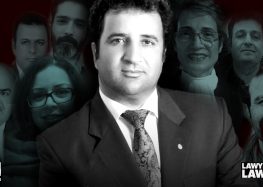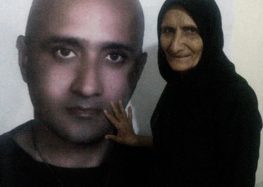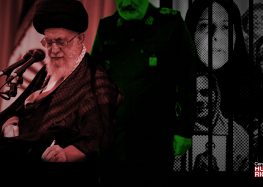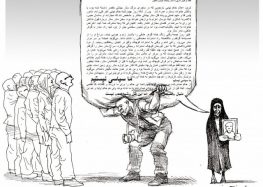Iranian Human Rights Lawyer Quits after Years of State Harassment and Threats
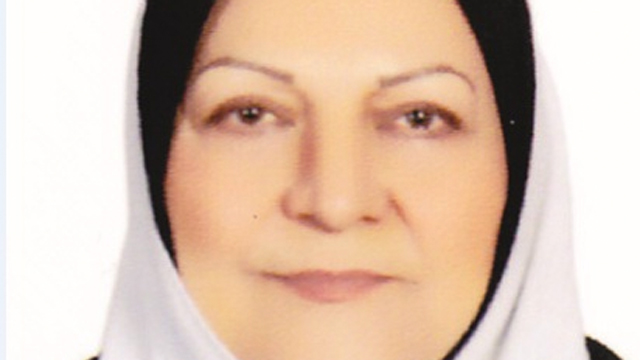
“In this society, lawyers who bear witness to injustice and speak the truth get punished.”
Constant pressure and harassment by Iran’s Judiciary and security establishment have forced a human rights lawyer to leave her profession. Giti Pourfazel—who spent nearly 10 years representing political prisoners and their families, usually for free—has submitted her resignation to Iran’s Bar Association.
“I have paid my debt to society and reached a point where I don’t have the mental strength to carry on,” she told the International Campaign for Human Rights in Iran in an interview. “I had to quit and ask for retirement, but I have kept busy. I don’t practice law any more, but I’ve started to do some writing.”
“Most of the cases I took on were political ones,” said Pourfazel. “These individuals were being persecuted for their political beliefs. I would give interviews and talk about these cases and that’s how I got into all kinds of trouble that continue to this day. It got to a point where I couldn’t continue on that path any longer. I was really under a lot of pressure.”
“In this society, lawyers who bear witness to injustice and speak the truth get punished,” she added. “Why? Because they love their country.”
Throughout her career Pourfazel represented scores of people who were persecuted by Iran’s security and judicial systems for their beliefs. “The cases I received were heartbreaking. My conscience wouldn’t allow me to refuse them, especially those who did not have the means to pay a fee,” she said. “So I would take these cases and saw that there was so much injustice that in reality nothing could be done.”
In 2012 Pourfazel represented the family of Sattar Beheshti, a 35-year-old blogger who died in police custody in a case that drew attention worldwide. Pourfazel’s persistence led to the rare prosecution of a law enforcement official; the policeman in charge of Beheshti’s interrogation was sentenced to three years in prison, two years in exile, and 74 lashes.
“When I was investigating the Sattar Beheshti case, I would go to the Judiciary’s office at Azari Crossing in south Tehran to read the relevant files. But the judge was never there, nor was the prosecutor. So the staff would refuse to give me copies of the contents of the files, even though as a lawyer I needed them to prepare my defense,” she told the Campaign. “Of course, I had expected them to be obstructive and I told the Beheshti family that they would not get the outcome they were seeking.”
“The court sentenced the interrogator to three years in prison for ‘involuntary manslaughter’ even though the medical examiner’s report explicitly stated that Sattar’s death occurred as a result of blood clots resulting from severe blows to his body,” she added. “That’s deliberate murder. They had beaten and tortured the young man so much that he lost his life. Well, how can I not be upset? I am a mother myself. I have children of my own. How can I not sympathize with Sattar’s mother?”
Throughout her career Pourfazel was persistently harassed by the Intelligence Ministry. “I kept getting phone calls from them and I was summoned many times and asked to sign documents pledging that I would never give interviews to foreign channels,” she said. “But I told them there’s no law against it. I protested, and said: ‘why won’t the domestic media interview me?’”
“One time a reporter from one of the state-controlled television channels called me for an interview and I told her that I say what I believe is true and not the things they want me to say and she hung up on me,” added Pourfazel. “The Intelligence Ministry wanted me not to give interviews, not to talk—to shut up.”
Pourfazel received her license in 1977 after graduating from Tehran University’s College of Law. She went to France to continue her studies but returned to Iran during the 1979 Revolution. In 1983 she was among 57 lawyers who were disbarred for political reasons by the judge of a revolutionary court, Ayatollah Mohammad Mohammadi Gilani.
“In 1998, when the Bar Association’s Board of Directors was elected by lawyers for the first time, they reviewed my case and concluded that I had been disbarred unjustly and my license was reinstated. After all, I had never been a member of any political group or faction,” she said.
Pourafzal began accepting human rights cases in 2007 when she represented the Iranian-Kurdish human rights defender, Mohammad Sediq Kaboudvand. “After that 90 percent of the cases I handled were political,” she said. “I was the lawyer for Heshmatollah Tabarzadi, Kourosh Zaim, Alborz and Hamid Ghassemi-Shaal, Nasrin Sotoudeh, Sedigheh Moradi, Omid Dana, Peyman Aref, Serajjedin Mirdamadi, a number of Baha’is in Shiraz, and several others until I retired in 2013.
“I also represented Mojtaba Ahmadi, a 22-year-old man who had been accused of insulting the Prophet Mohammad and was sentenced to death, but fortunately I was able to save his life,” she added. “The fact that most of these political cases were handled for free or for a minimal fee also took its toll.”


